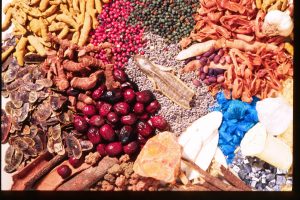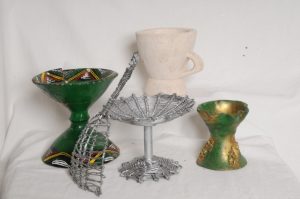The history of medicine, incense, spices, and oils
A study of the history of medicine in the Land of Israel began as a joint project with Prof. Ephraim Lev, currently at the University of Haifa and the Technion. We established the Department of the History of Medicine, which is affiliated with the Department of Land of Israel Studies at Bar-Ilan University. The department engages in teaching and research on the nature of healing practiced in Israel in the early periods; from the period of the Bible, the Mishna, Talmud, and the Middle Ages to the modern era. The research also discusses a description of the healers and their training, as well as common diseases and common medications. The first publications dealt with physicians and medicines in Jerusalem throughout the ages. Additional studies have been devoted to famous Sephardic personalities active in the medical and herbal industries of the Middle Ages, including R. Jonah Ibn Jannah, Ibn Balakhrash, Abu al-Abbas al-Nabati, and Ibn al-Bitar.
Activity in this area includes advising research students and publishing articles and books. The main area of specialization is in “medicinal materials” from plants, animals, and minerals used by the ancients, as mentioned, for example, in rabbinical literature and medieval medical writings. Some of these materials, including types of resin, incense, and spices, were products of great value. This had an important influence on the commerce and economy of the country at all times. Some of the products of the research on spices appeared in the book “HaKtoret.” A special project was devoted to restoring the אפרסמון ]opobalsamum] plant to the Land of Israel and its acclimatization there, techniques to extract its sap, and an examination of its medicinal properties. Other studies were conducted on the oil of moringa peregrine, zachum {Egyptiam balsam] oil and the replication of the shemen rahus [washed oil] mentioned on ostraca in the city of Samaria during the period of the kingdom of Israel. A study was conducted in India, in the town of Knaug, where the techniques of the Middle Ages have been preserved in the concoction and production of perfumes.
In the course of the research, medical writings which had been in manuscript form only were published, such as by the Jerusalem doctor al-Tamimi (in cooperation with Dr. Yaron Seri); a medical encyclopedia called “Sori ha-Guf” by R. Nathan ben Yoel Falaquera; an essay on practical medicine by Rabbi Hayyim Ben Attar (both with the collaboration of Dr. Yael Buchman) the commentary by R. Jacob Zahalon on Maimonides’s Regimen Sanitiatis, and the book “P’ri Megaddim” by Jerusalem physician R. David Di Silva. Now we are in the advanced stages of preparation for a new edition of Maimonides’s “Sefer Sammei ha-Mavet’ (In collaboration with Dr. Yaron Seri) and an annotated edition of Assaf Harofeh’s work (in cooperation with Emunah Levy).
Another field of research is ethnopharmacology, documenting the traditional medicinal herbs used in traditional societies in Israel and abroad. This refers to the documentation and reconstruction of the ancient medical culture, which is rapidly disappearing. In the study conducted with Prof. Ephraim Lev, there were about 250 traditional medicinal herbs in Israel as of the year 2000 and 350 in the Kingdom of Jordan.
Later, we conducted similar surveys in Morocco, Zanzibar and several countries in Southeast Asia, such as in India, China, Burma, and Thailand, together with Dr. Yaron Seri. Another pioneering study is the documentation of traditional medicine of Ethiopian immigrants in Israel, conducted in cooperation with Ms. Dikla Danino-Ansbacher which includes unique methods of treatment and medicinal herbs based primarily on questioning informants, investigating about 50 spice shops, and two field trips conducted in the country of origin, Ethiopia.
As part of the ethnopharmacological study, a comparative collection, the only one of its kind worldwide, was set up which includes many hundreds of medicinal materials, incense, and spices mentioned in the ancient sources.
Two other large-scale studies conducted with Prof. Ephraim Lev related to the medical records found in the Cairo Genizah and enable us to study the gap between practical medicine and theoretical medicine as it appears in medieval medical essays. Another study dealt with the dissemination of new medicinal herbs, spices and perfumes following the Arab conquests.
In addition, we dealt with a variety of issues related to ancient and traditional medicine, such as: “theriac” – a serum against snakes and other poisons, drugs to increase memory, the peony plant and epilepsy.


